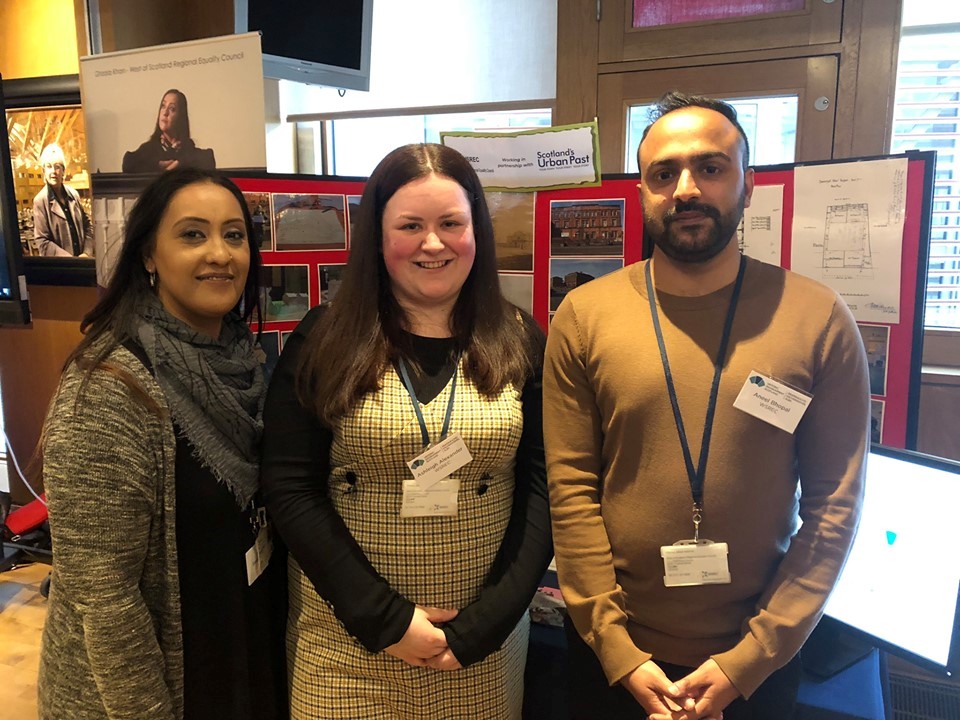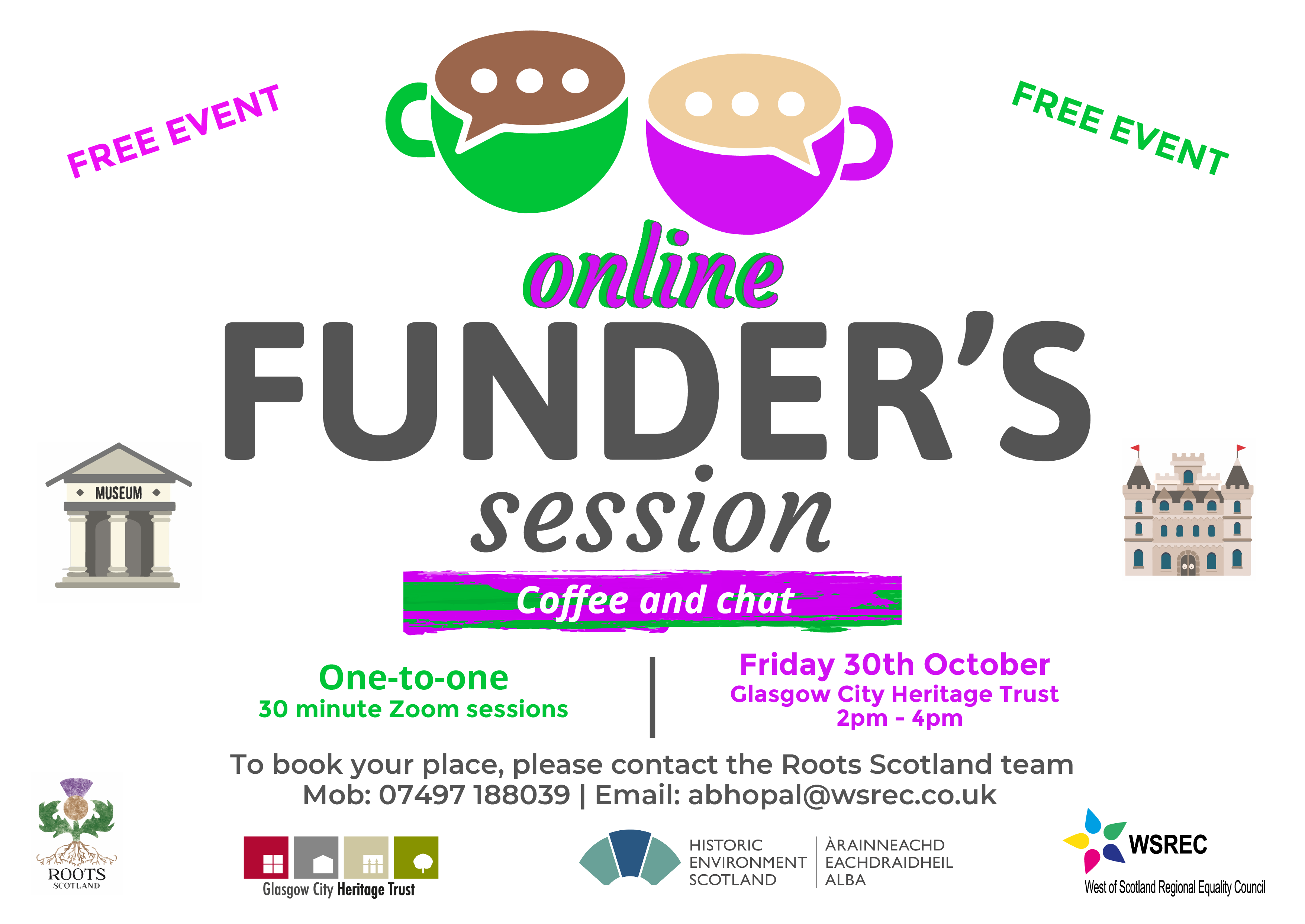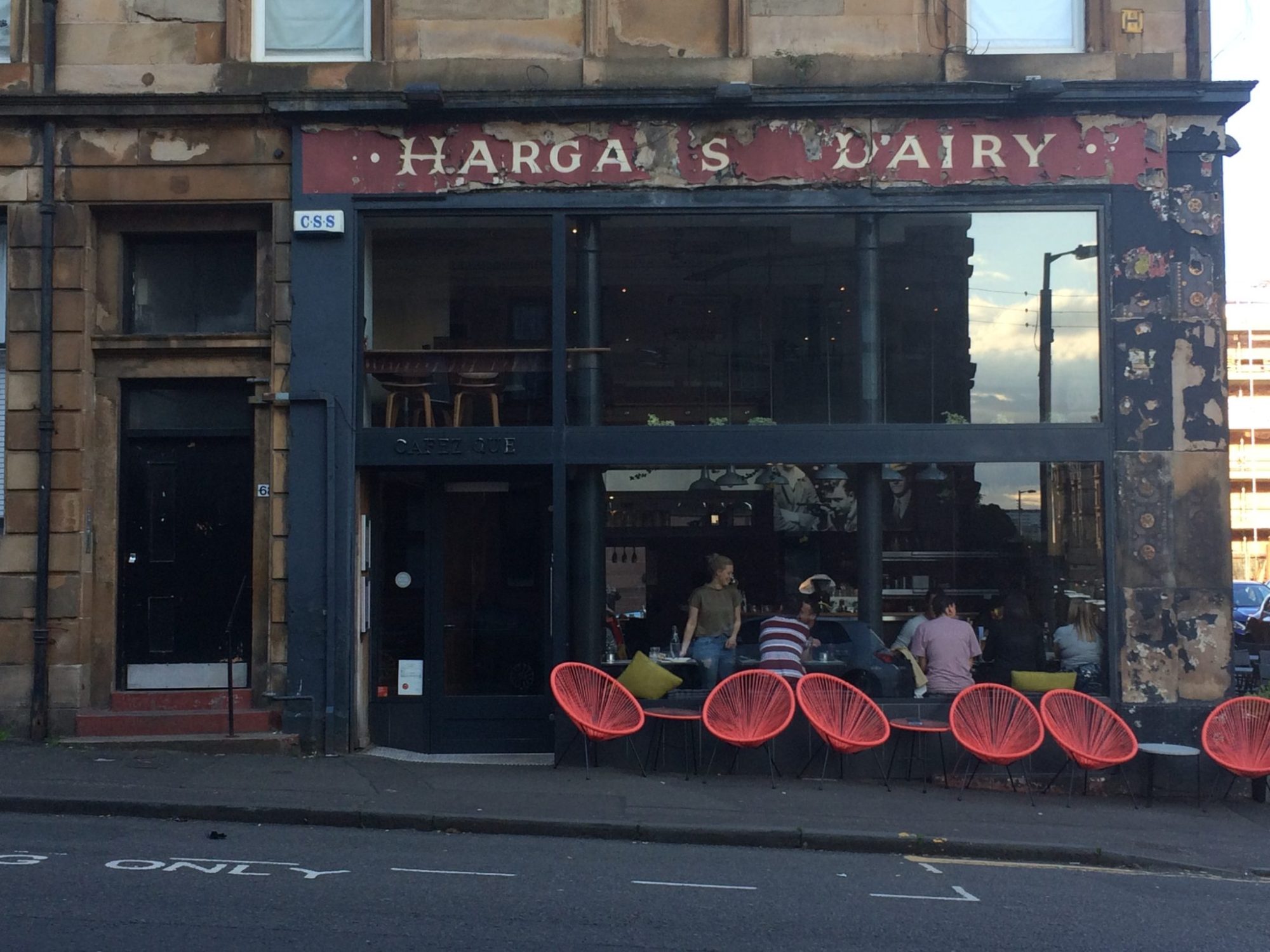This October Glasgow City Heritage Trust celebrates Black History Month (BHM) with a series of interview blogs. Our first interview is with Aneel Singh Bhopal from West of Scotland Regional Equality Council, whom we are collaborating with to make our grants scheme more accessible.
As a charity that works to promote the understanding, appreciation and conservation of Glasgow’s historic built environment, we are aware of how much of this city’s rich architectural heritage is built on the UK’s imperial past. GCHT understands that we have a role to play in helping to build a better society that is just, diverse and anti racist.
We are working to ensure the projects we support are more representative of Glasgow’s diverse communities, and we are committed to supporting projects from a variety of voices. If you know of any projects which could be eligible for our funding, or if you’d like to discuss ideas with us, or ways in which we could provide a platform, please let us know as we would be delighted to help.

Interview with Aneel Singh Bhopal, Development Officer at West of Scotland Regional Equality Council
West of Scotland Regional Equality Council (WSREC) is a charity governed and run by minority ethnic communities in the West of Scotland. Their aims are to eliminate discrimination, reduce inequality, promote human rights and promote good relations between all communities in the West of Scotland and beyond. GCHT have been collaborating with WSREC since last July, creating a series of free online funding sessions aimed at applicants from minority ethnic communities to make our grants scheme as accessible as possible. The next online funding session is Friday 30th of October, please contact Aneel via abhopal@wsrec.co.uk for more details or to book.

1.Do you think that the recent events linked to Black Lives Matter created a shift in how people of colours’ voices are heard and represented in the heritage landscape?
The worldwide protests prompted by the murder of George Floyd in May 2020 and the consequent rise in profile of the BLM movement has undoubtedly created a shift in how people of colours voices are being heard and represented in the heritage landscape.
It is WSREC’s goal to eliminate all forms of discrimination from society and as one of the many projects we operate, Roots Scotland aims to contribute to this ethos by actively engaging minority ethnic communities with the heritage sector. As the prominence of the BLM movement has risen during the previous months we have certainly seen an increase in key heritage stakeholders wanting to engage with our work and seek our knowledge, advice and experience on how the heritage sector can become more inclusive for people of colour. We see these steps as positive and welcome all that are keen on learning more about how they can help to increase the voice of minority ethnic people within the heritage sector and beyond.
2. How is the historic built environment perceived by different communities?
From our work with minority ethnic communities, in general, there is an awareness that many historic buildings in the centre of the two largest Scottish cities, Glasgow and Edinburgh, were erected on the back of profits made through colonialism, slavery and empire. However, there seems to be a greater understanding and knowledge of this amongst the South Asian and African communities in Scotland which could be attributed to the fact that many of these communities have a direct link to the effects of colonialism, slavery and empire due to their own cultural heritage. (for example, many South Asian men and women left the newly partitioned India and Pakistan in the early 1950s to work in the UK and would have had a good understanding of the historic undertones of empire and its effects which have then been explained to future generations)
3. What are the historic buildings in Glasgow that in your opinion would benefit from a reinterpretation ?
It has been well publicised that many buildings in Glasgow have been historically funded through links to the slave trade, colonialism and empire. It would be good to see more work done on highlighting Scotland/UK’s role in this to help educate the general population so that people can begin to reinterpret their own understanding of Scottish/British history which they may have never been challenged to contemplate previously. This could be done through the development of promotional materials, campaigns, training programmes in schools and workplaces, media releases and partnership work across the heritage sector. The considerable influence that many key heritage stakeholders have could also be leveraged to impact educational policy and practice in terms of including the teaching of empire and slavery on the curriculum. These changes will help people to better understand how institutional and structural racism in today’s society has been embedded due to the actions of the past.
4. What sort of projects do you think could help different communities to build a sense of ownership and appreciation of Glasgow Urban Landscape?
The vast majority of the communities that we work with are proud Glaswegians or possess a sense of pride at being citizens of Glasgow. However, because of their dual cultural identities, many feel that they are still not made to feel as much a part of the city as their White, Scottish counterparts. If the heritage sector can do more to counter this then that would go a long way in improving how comfortable minority ethnic people feel about engaging in projects that build a sense of appreciation of the city that many have been part of and admired for decades.
Faith also plays a strong part within the minority ethnic communities that we work with, hence, projects which focus on places of worship may encourage a particular sense of interest. For example, people would be keen to learn more about the history of some of the Mosques, Gurdwaras, Mandirs, Churches and other faith institutions based across the city.
Finally, there would be a keen interest amongst minority ethnic communities with regards to finding out more about built heritage in Glasgow that have benefited from empire, slavery and colonialism as has already been proved popular with current tours focusing on these issues taking place around the city.
5. How do you think the current pandemic affected WSREC work?
The current pandemic has brought challenges to people from all backgrounds. However, it has also allowed communities to demonstrate strength, compassion and resilience and this is something which the 3rd sector in Scotland has exemplified in abundance.
Similar to many, the current pandemic has meant that our staff have been working from home for the past seven months with many of our regular face to face services requiring adaptation in order for our work to continue. We also recognised that, as a result of the lockdown and the effects of the pandemic, our communities were suffering disproportionately from poor physical and mental health, social isolation and loneliness. Consequently, we have moved a lot of our services online and have also been providing support and advice via phone and email. Our services during lockdown include, but are not limited to, the following: IT Support classes, Cookery classes, Gardening classes, Exercise classes Facilitation of meetings between charities and key stakeholders, Health and Wellbeing support, Hate Crime and Discrimination (Advocacy and Support), Energy Advice, Food package deliveries Info and advice for EU citizens, Employability and advocacy services.
You can find out more about our work here:
https://www.facebook.com/wsrec71/
Join our speakers database!
GCHT runs a quarterly events programme and we’re always looking for new stories to be told and new folk to tell them. We are also committed to improving access to heritage and to make heritage relevant to all regardless of background. If you can give a talk relating to Glasgow’s heritage, history, architecture, communities or culture we want to hear from you. Click on this link to join our speakers database: https://www.glasgowheritage.org.uk/speakers/
We are looking for new Trustee’s!
We are currently recruiting for 3 new Trustees. Applications are sought from enthusiastic and innovative individuals with business expertise at a senior level and a passion for Glasgow’s historic environment. We encourage applications from all backgrounds, communities and industries, and are committed to having a Board of Directors that is made up of diverse skills, experiences and abilities. We actively encourage BAME and disabled applicants and value the positive impact that difference has on our Board. Click here for more info and how to apply: https://www.glasgowheritage.org.uk/join-our-board-of-trustees/



